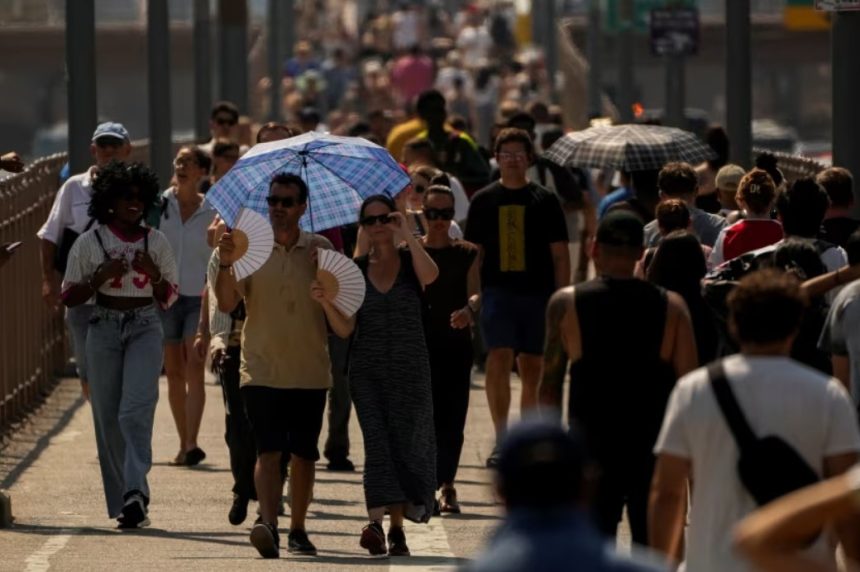England Braces for Severe Water Shortages as Heatwave Warning Issued
England is heading into a critical water crisis, with officials issuing a stark heatwave warning as temperatures climb towards 34°C this week.
Despite bursts of rainfall in July, large swathes of the country remain parched. The National Drought Group, made up of the Met Office, regulators, government departments, water companies, and environmental bodies, has flagged “nationally significant” shortages, warning that the situation is already harming farms, wildlife, and ecosystems.
Five regions are still officially in drought, with another six under prolonged dry weather status. The consequences are being felt everywhere: crop yields are falling, feed for livestock is running short, wetlands are drying out, river habitats are shrinking, and wildfires are becoming more frequent.
Hosepipe bans remain in force for Yorkshire Water customers, along with restrictions in areas covered by Thames Water, South East Water, and Southern Water.
Helen Wakeham, the Environment Agency’s director of water and chair of the drought group, stressed: “The current situation is nationally significant and we are calling on everyone to play their part and help reduce the pressure on our water environment.
Water companies must continue to quickly fix leaks and lead the way in saving water.”
River flows and reservoir levels are now far below seasonal norms. The latest figures show reservoirs are just 67.7% full on average, down from the usual 80.5% for early August and even lower than July’s 75.6%.
Some of the lowest readings are in Blithfield (Staffordshire), the Derwent Valley group in Derbyshire, and Somerset’s Chew Valley Lake and Blagdon Lake – all now under 50% capacity.
Nearly half of England’s rivers recorded below-normal flows in July. Two – the Wye and Ely Ouse – hit record lows. This has knock-on effects for oxygen levels, threatening fish, triggering algal blooms, and blocking wildlife migration.
Dr Will Lang, chief meteorologist at the Met Office, said: “This week is starting off warmer than of late across England and Wales, with temperatures getting towards the mid-30s Celsius for some in the south.
While conditions remain mostly settled across the south, the picture is more unsettled further north-west, with rain or showers at times.
As we move into the second half of August, there are indications of high pressure building and therefore largely settled conditions overall.
Although dry weather is more likely, rain, showers, or thunderstorms cannot be ruled out.”
Experts warn that climate change is making extreme weather in the UK more common, turning short dry spells into prolonged droughts, and making heatwave warnings an increasingly familiar feature of British summers. Even July, with its scattered downpours, was still the fifth warmest on record.
Environmentalists are urging both households and businesses to conserve water, from fixing leaks to small changes like switching off taps when not in use.
Even unusual tips, such as deleting old emails to reduce cooling demands in data centres, are being promoted to ease pressure on water resources.
As temperatures soar this week, emergency services are preparing for a surge in wildfire incidents. But the Fire Brigades Union warns that funding cuts have already left crews stretched thin, pointing to recent blazes, such as Holt Heath, which required reinforcements from five different fire services.
The message is clear: the heatwave may be short-lived, but the water crisis is here to stay unless urgent action is taken.






